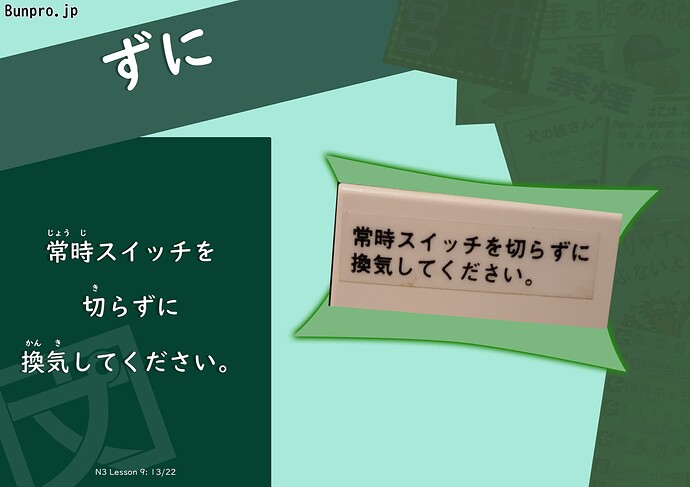You’re not the only one, I promise. 
This sentence took me a bit to decipher just because it doesn’t seem to translate naturally. When I have trouble with one of the sentences here are a few things I do to help:
Type the sentence out first and use rikaikun or Yomichan to hover over and check the words I don’t know.
Sentence spoilers
I was confused about 常時. The definition from rikaikun says it can be a noun or an adverb.
The 常時 right against スイッチ is a little strange, I couldn’t tell if it was “continuous switch” or, if the 常時 was acting as an adverb like at “at all times”.
So then I use this website to search for a sentence that contains the part that I’m struggling with.
https://sentencesearch.neocities.org/
More sentence spoilers
In this case, the only example for 常時 was translated as “at all times”.
常時、救命胴衣を身に付けて下さい。
Wear your life jacket at all times.
I also check jisho.org for examples.
The example sentence on Jisho for 常時 is this:
彼は常時彼の才能をねたむ人々から中将されることにうんざりていた。
He was sick of being vilified all the time by people who were jealous of his ability.
So I decided to go with “at all times” for my translation instead of “continuous switch” or “common switch”.
Sorry it’s a little wordy but hopefully this helps someone. That Sentence Search website comes in handy quite a bit!










 It’s nice that they ask so politely
It’s nice that they ask so politely